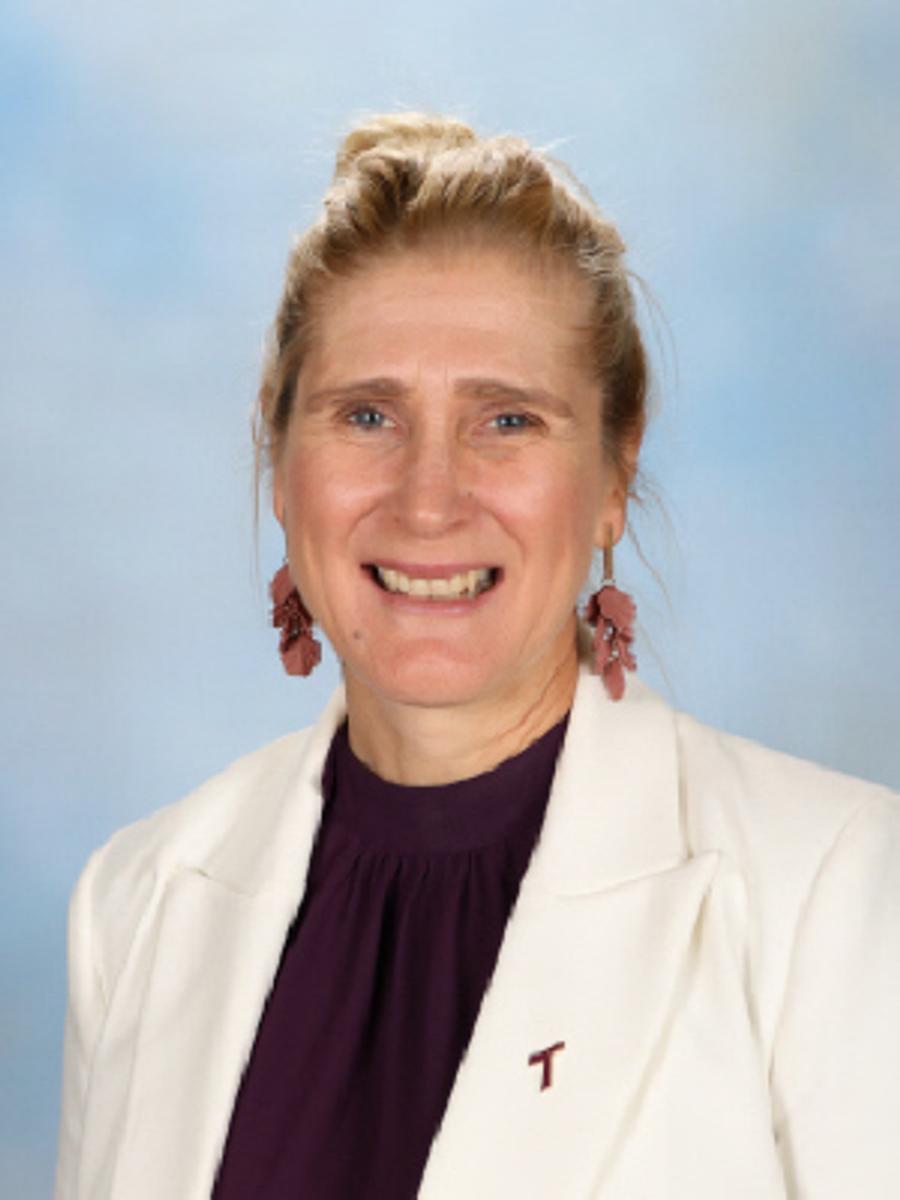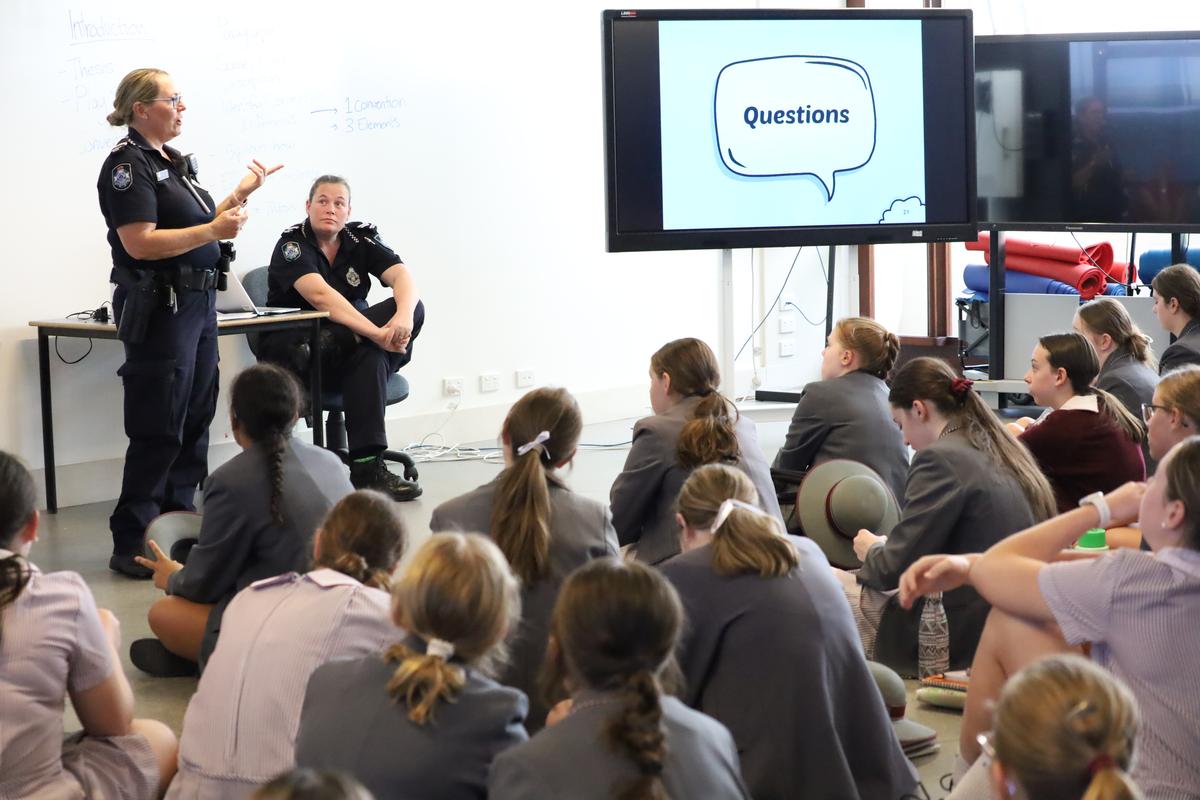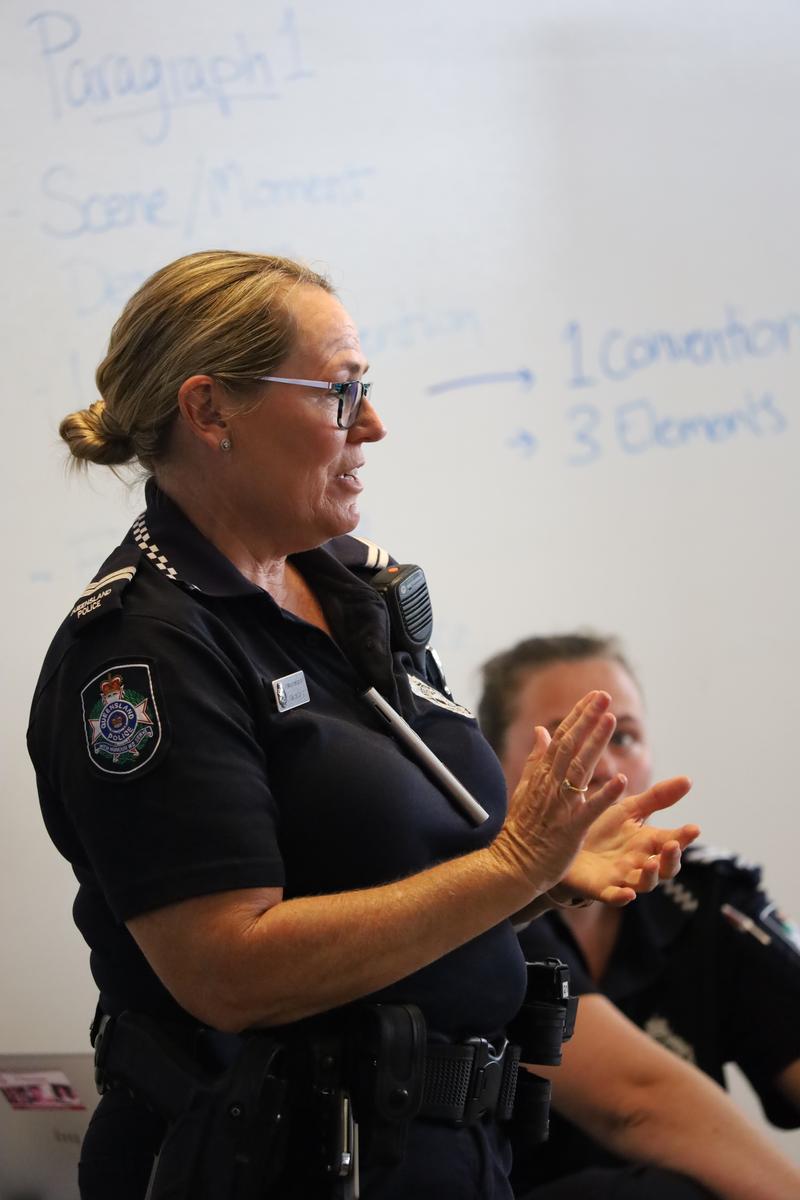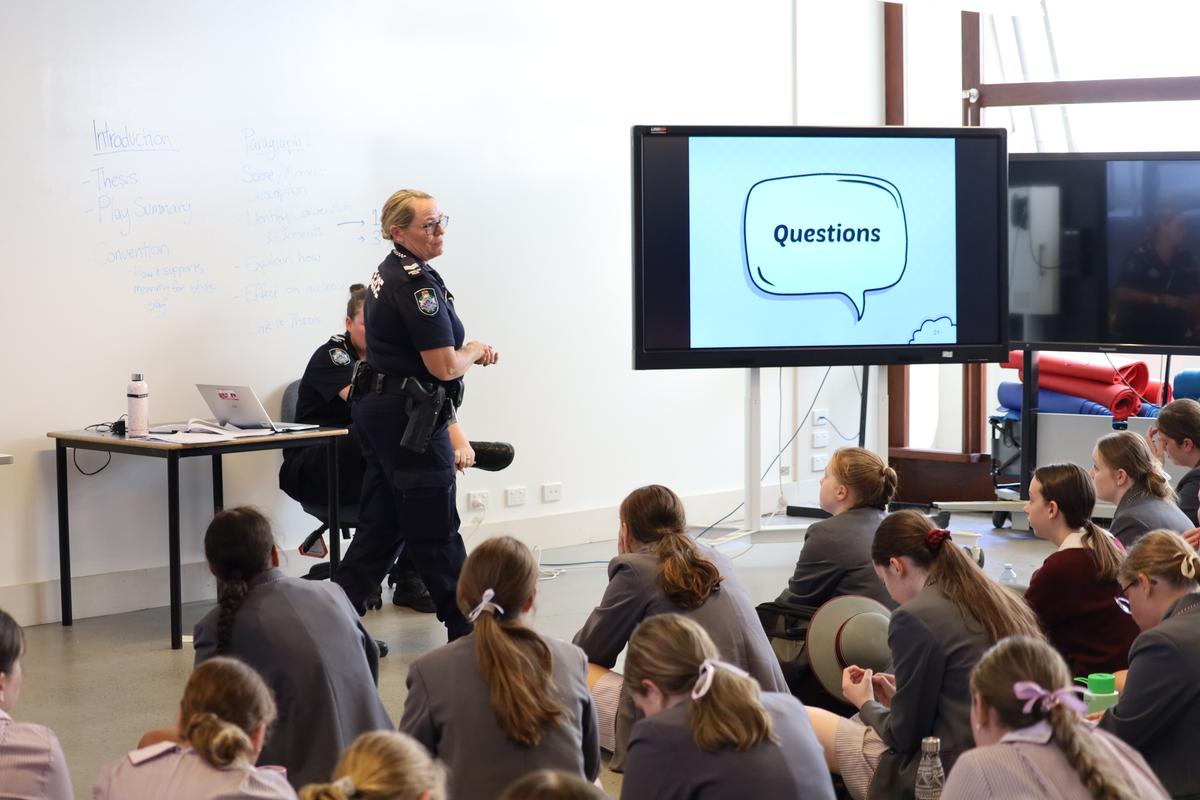Deputy Principal
Student Development & Wellbeing

Deputy Principal
Student Development & Wellbeing


“Delay, disrupt and disengage” was one of the tactics shared by Senior Constable Kimberley Ritcher from the Queensland Police Service with our Year 9 students yesterday in her presentation to them about online safety. This presentation was a part of the “ThinkUKnow” Program run by the Australian Federal Police. Presentations were also made to the students in Years 7 and 11 yesterday, and students in Years 8, 10 and 12 will hear similar presentations on Thursday 1 June.
Ritcher talked to Year 9 students about what to do when faced with unwanted attention from strangers online and she warned students about how manipulative people can be by sharing some real-life examples. One such example involved a young female being enticed to send photos of herself in her active wear to someone online she didn’t know with the promise that it would boost her modelling career. “Online predators know what to say and can be very manipulative,” Ritcher said. Fortunately, in this example, the young person was able to discern that something wasn’t quite right and after talking to her parents reported the incident the police.








Ritcher went on to discuss the topic of sexual extortion. Whilst some people ask for photos for their own personal use, these days it is more about organised criminal activity and seeking photos for the purpose of blackmailing unsuspecting people. Sexual extortion is a serious form of online blackmail which can involve threatening to share photos if the person doesn’t pay up. “Often it turns out to be totally different from what you are first being asked and now they want a whole lot more,” Ritcher said.
Making a report to the police is one important action students can take if they find themselves in a situation where they are receiving unwanted attention from a stranger online. Ritcher discussed other actions that students can take too, including saying no (and continuing to say no), taking screenshots of inappropriate comments for example, blocking the offending person and telling a trusted adult. “Nothing is so bad that you can’t tell someone,” she said. “And it is never too late to tell someone and break the cycle.” Ritcher also stressed the importance of remaining calm and knowing that you are not in trouble. “Please remember not to blame yourself.”
Ritcher did advise students not to take or send “nudes” of themselves or other young people as this can constitute child exploitation, and she explained the difference between production (taking an explicit photo), possession (having an explicit photo on your phone) and distribution (passing an explicit photo on), all of which are offences. “It is really important that we ask ourselves what role we might be playing in image-based abuse,” she said.
Furthermore, Ritcher challenged students to ask themselves why they are taking certain photos and selfies, and what the outcome would be should they share or post such information. To this end, Ritcher shared a handy acronym with the students to help them to determine what to post or share, called share AWARE.
A – Is it Appropriate?
W – Who will be able to see it?
A – Is it Accurate?
R – Is it Respectful?
E – What can the Environment reveal about me? For example, are students in school uniform?
Other important tips shared by Ritcher included checking privacy settings, turning off settings such as sharing one’s location and putting thought into one’s password (or “phrase word” as Ritcher likes to call it).
In closing, I want to highlight another key point that Ritcher made that I think is crucial. She stressed the importance of our students having each other’s backs. As well as supporting each other in being able to manage a difficult situation, for me this means not posting inappropriate things about each other, including things that are untrue. In my role, I do come across this and it is very concerning. I implored our students to look out for each other and I reminded them about being respectful, especially given our theme of “Respect” this year.
And for me, another good rule of thumb is, if you don’t know a person in real life then don’t friend them online.
On 31 May, we will be holding a parent session as part of this “ThinkUKnow” Program. The presentation will be delivered by a local law enforcement member and an industry volunteer, and addresses topics including self-generated child abuse material, online grooming, sexual extortion, and importantly encourages help-seeking behaviour.
This is a fantastic opportunity for you to learn more about young people and the online environment, and how you can help them to be safe and responsible users of technology. If you are interested in attending this session, please click on this link to register.